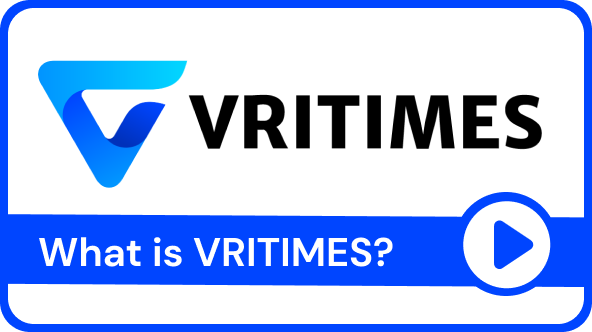/ Key Trends in Southeast Asia’s Labour Market for 2025: Insights from MVC Resources
Key Trends in Southeast Asia’s Labour Market for 2025: Insights from MVC Resources
The Rise of Digital Recruitment
The digital transformation of the recruitment industry is accelerating, with Malaysia witnessing a 16% year-on-year (YoY) increase in e-recruitment activity (HCAMag). This growth highlights the increasing reliance on digital hiring tools as companies strive to improve efficiency, streamline candidate selection, and secure top talent in a competitive job market.
Across Southeast Asia, businesses are leveraging artificial intelligence (AI) and automation to revolutionise the hiring process. Platforms like Kalibrr in the Philippines and Job3s.vn in Vietnam are leading the way in AI-powered recruitment. Kalibrr has facilitated employer-candidate matching for over a decade, processing over 10 million job applications annually. Meanwhile, Job3s.vn’s AI-driven technology connects candidates with employers and was recently recognised with the Sao Khue Award 2024 in the A-IoT category for its innovation in recruitment.
Several companies in Southeast Asia are actively integrating AI-powered solutions into their recruitment strategies, some include:
- Impress (Singapore): Offers an AI-powered chatbot that conducts candidate interviews, streamlines data collection, and integrates seamlessly with existing applicant tracking systems (ATS).
- JobHopin (Vietnam): Utilises AI and machine learning to match candidates with suitable job openings, enhancing hiring efficiency.
- Snaphunt (Singapore): Provides an AI-driven platform for sourcing, interviewing, and analytics, ensuring better candidate-role matching.
- Kalibrr (Philippines & Indonesia): Incorporates AI-driven assessments and an ATS to connect employers with potential candidates, improving hiring decisions.
These cutting-edge technologies not only accelerate hiring and enhance candidate-role matching but also enable companies to anticipate future talent needs.
AI’s Role in Workforce Planning and Talent Development
Beyond recruitment, AI is playing a crucial role in workforce planning and employee development. By analysing data and predictive workforce modelling, organisations can proactively address skill shortages and optimise long-term recruitment strategies.
For instance, AI-powered platforms can evaluate individual learning styles and performance data, providing personalised training programs that enhance employee engagement and skill development. By adopting these advanced technologies, companies in Southeast Asia can future-proof their hiring strategies, secure high-quality talent, and drive sustainable business growth.
As AI continues to reshape the recruitment industry, businesses that embrace these innovations will have a competitive advantage in securing the best talent in an increasingly dynamic job market.
Industry Growth and Hiring Demand
While industries such as hospitality, retail, and logistics have experienced notable job growth, some sectors are facing stagnation or decline:
Industries Experiencing Decline:
Manufacturing: The manufacturing sector in Southeast Asia has seen a reduction in job openings, with a decrease of 13,000 positions reported in recent data . This decline is largely attributed to supply chain disruptions, rising operational costs, and a slowdown in global demand for exports, particularly in electronics and automotive production. Additionally, economic uncertainties and shifting trade policies have contributed to reduced investments in the sector (Vietnam Manufacturing Tracker: 2024-25).
Retail Trade: Employment in southeast Asian countries such as Indonesia retail trade sector has shown little net change over the past year, indicating stagnation in job growth (Reuters). This stagnation is driven by inflationary pressures affecting consumer spending, the continued rise of e-commerce reducing the need for traditional retail staffing, and corporate cost-cutting measures in response to economic uncertainties Financial Times.
Unchanged Sectors:
Utilities and Mining: These sectors have maintained steady employment levels, with minimal fluctuations reported in recent months. This stability can be attributed to consistent demand for energy and raw materials, long-term contracts in the energy industry, and the gradual transition towards sustainable energy sources, which has kept job losses at bay despite shifts in energy policy.
Further Analysis and Implications:
The contrast of growing and declining industries underscores the dynamic nature of the current job market. For employers and job seekers, this landscape presents both challenges and opportunities:
For Employers: Businesses in expanding sectors should focus on strategic talent acquisition to meet increasing demand. This involves investing in training programs, reskilling employees, and implementing retention strategies.
For Job Seekers: Individuals should stay informed about industry trends and consider opportunities in growing sectors like healthcare and digital technology. Acquiring versatile skills can enhance employability, particularly in a fluctuating job market.
Understanding these trends enables both employers and job seekers to make informed decisions, fostering resilience and adaptability in an evolving economic environment.
The Growing Importance of Soft Skills
Research highlights soft skills as a key factor influencing hiring trends. Employers now prioritise professionals with strong communication, adaptability, critical thinking, teamwork, leadership, and problem-solving abilities alongside technical expertise.
Studies reveal that 75% of long-term job success depends on soft skills, while only 25% relies on technical skills (Stanford Research Institute & Carnegie Mellon Foundation). This shift aligns with the modern workplace, where automation and AI handle technical tasks, making human-centric skills even more valuable.
For businesses, this means investing in employee training beyond technical upskilling to include leadership development, problem-solving, and emotional intelligence. For job seekers, enhancing soft skills can improve employability and career growth, especially in industries where client interaction and innovation drive success.
The Shift Towards Hybrid and Remote Work
Workplace flexibility remains a priority for job seekers, with over 60% of Malaysian professionals preferring hybrid work models (ACN Newswire). This shift is prompting companies to rethink work policies and invest in digital collaboration tools.
Implications for Employers:
- Offer Flexible Work Arrangements: Implement hybrid models to support work-life balance.
- Enhance Supportive Benefits: Provide mental health support, family planning assistance, and pet-related leave.
- Foster an Inclusive Culture: Cultivate a workplace that values flexibility, inclusivity, and employee input.
Companies that fail to offer flexible work options risk losing top talent to more accommodating competitors.
Navigating Malaysia’s Evolving Job Market
Malaysia’s labour market is transforming rapidly. Businesses must move beyond traditional hiring metrics and focus on speed, efficiency, and strategic talent acquisition. With top candidates receiving multiple offers in a short time frame, employers who prolong their hiring process risk losing high-calibre talent to more agile competitors. To stay ahead, companies must streamline recruitment processes, leverage AI-driven hiring tools, and adopt a proactive approach to securing top professionals before they are snapped up by rivals.
In a competitive HR Services landscape, MVC Resources is dedicated to helping organisations secure top talent through consultative recruitment strategies, market insights, and employer brand representation. We ensure that businesses not only attract but also retain the right talent. Our expertise in employer brand representation strengthens companies' positioning in the job market, making them the employer of choice amidst fierce competition. With a hands-on, tailored recruitment strategy, MVC Resources empowers businesses to navigate hiring challenges and build high-performing teams.
For professionals seeking career advancement or organisations in need of expert recruitment support, visit Our Services Provided to explore available opportunities and tailored hiring solutions. For further insights and recruitment consultations, feel free to contact us.








